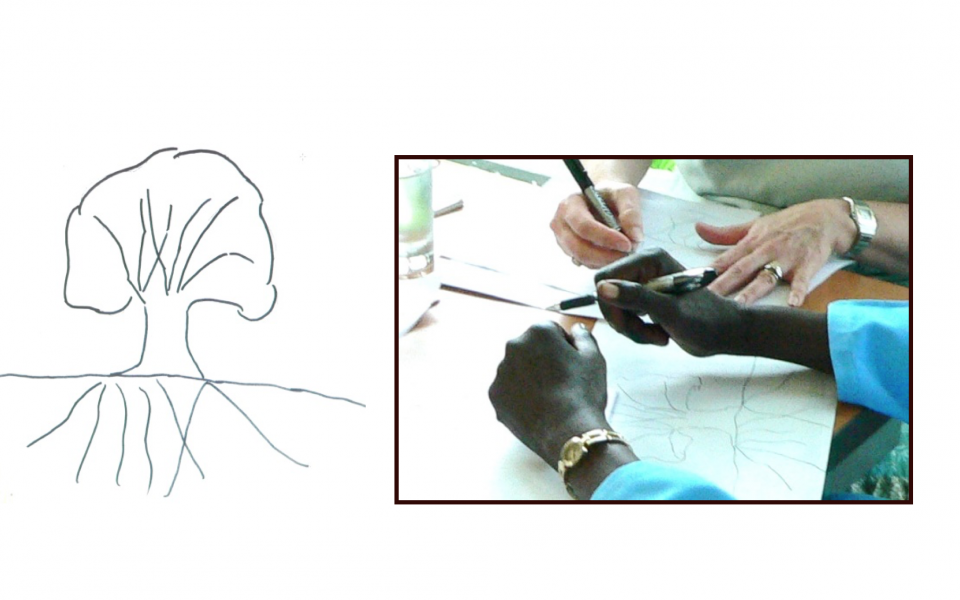The Listening Exercise
This Listening Exercise invites people to consider their experiences with listening and how to deepen their listening capacity. This activity was presented by Professor John Paul Lederach as part of a URI peacebuilding training program. For more information, see our Resource Library.
- Without pausing to think much, write a few sentences in response to this phrase: For me, good listening happens when…
- Remember a time when you felt someone, maybe a friend, a family member or mentor, really listened to you; a time, one-on-one, when you experienced good listening in your life. Write a quick series of descriptors, words or short phrases that capture the moment.
- Reflect for a moment on what the person listening did and what you did. Jot descriptor words or phrases.
- Qualities the listener brought
- Qualities I brought
- What the listener did
- What I did
Go back and see what you see from these lists. What are the most important words from these exercises? Circle or highlight these words.

Work with a small group to create a “Listening Tree.” Use a handout of a simple drawing of a tree and its root system. Show the tree below ground and above ground, with its trunk, branches and fullness of leaves. Use your lists to fill in your picture.
- What are the fruits of good listening? (Add these words to the fullness of tree and its branches.)
- What is the deep part of listening? What is needed for good listening that is invisible and beneath the surface? (Add these words beneath the ground within the root system.)
- When is my listening at its best? What qualities do I use when I am at my listening-best? (Write these words in the trunk.)
Professor Lederach explained:
“Too often in the field of peacebuilding, listening is something people ‘do’ –like techniques of good listening; but listening approximates something more like prayer/meditation. We can cultivate in ourselves an ability to listen in such a way that the person you are with comes to a deeper understanding of what the Divine is saying in their life. Listening has to do with those things that aren’t fully said, those things that we feel in a person more than what we hear. We can listen with the heart and listen for the voice that is speaking behind the voice that we actually hear.”
About this series:
Each year, hundreds of URI Cooperation Circles participate in the International Day of Peace (IDP). As a global community, we put organized global spirit and energy into action! Here are some beloved ideas and inspirations for peacebuilding. You can expect two issues of this series each week until September 21. Hope you love them too and find them useful!
See more posts in this series for more ideas about how to celebrate the International Day of Peace.
May Peace Prevail,
Sally